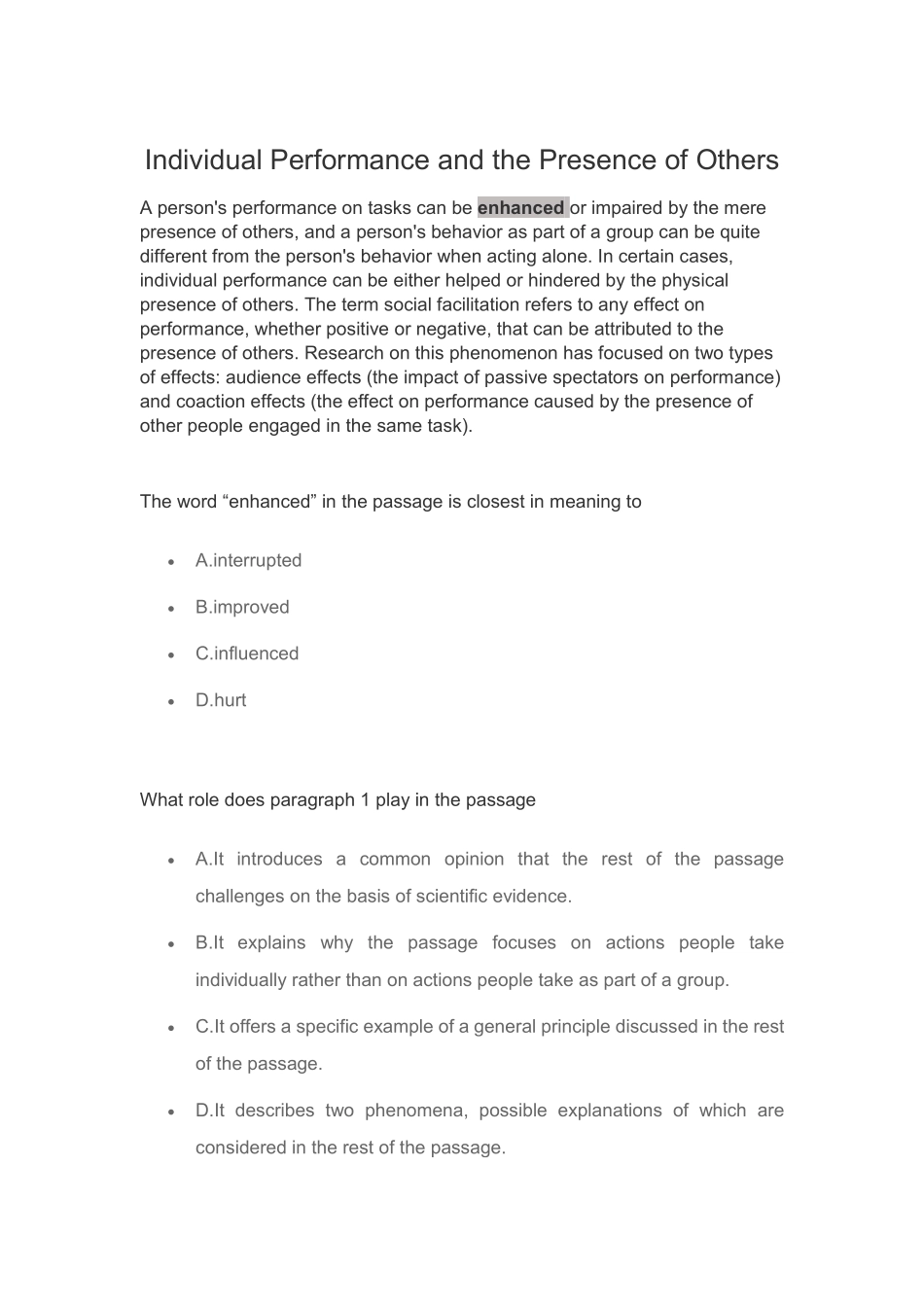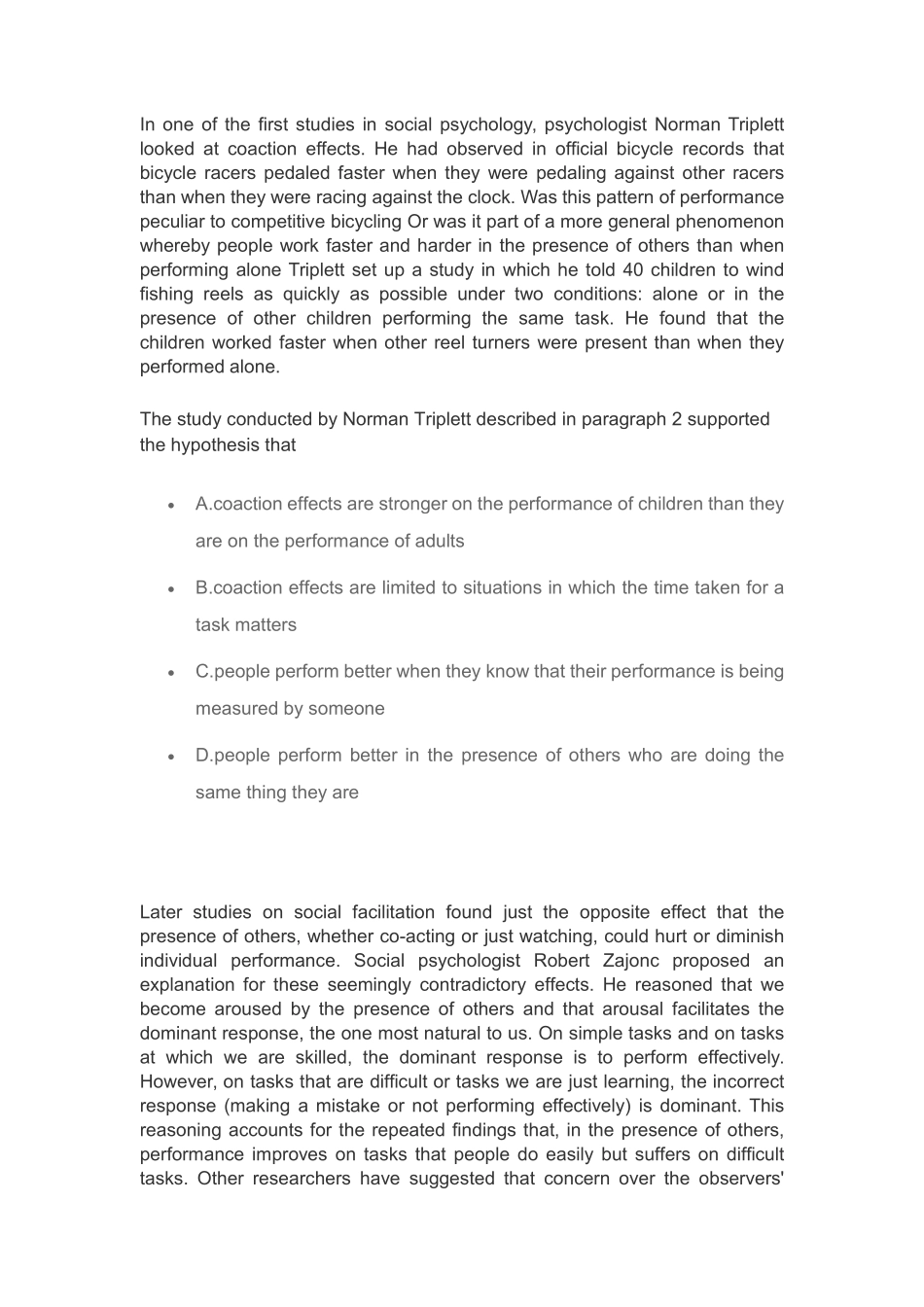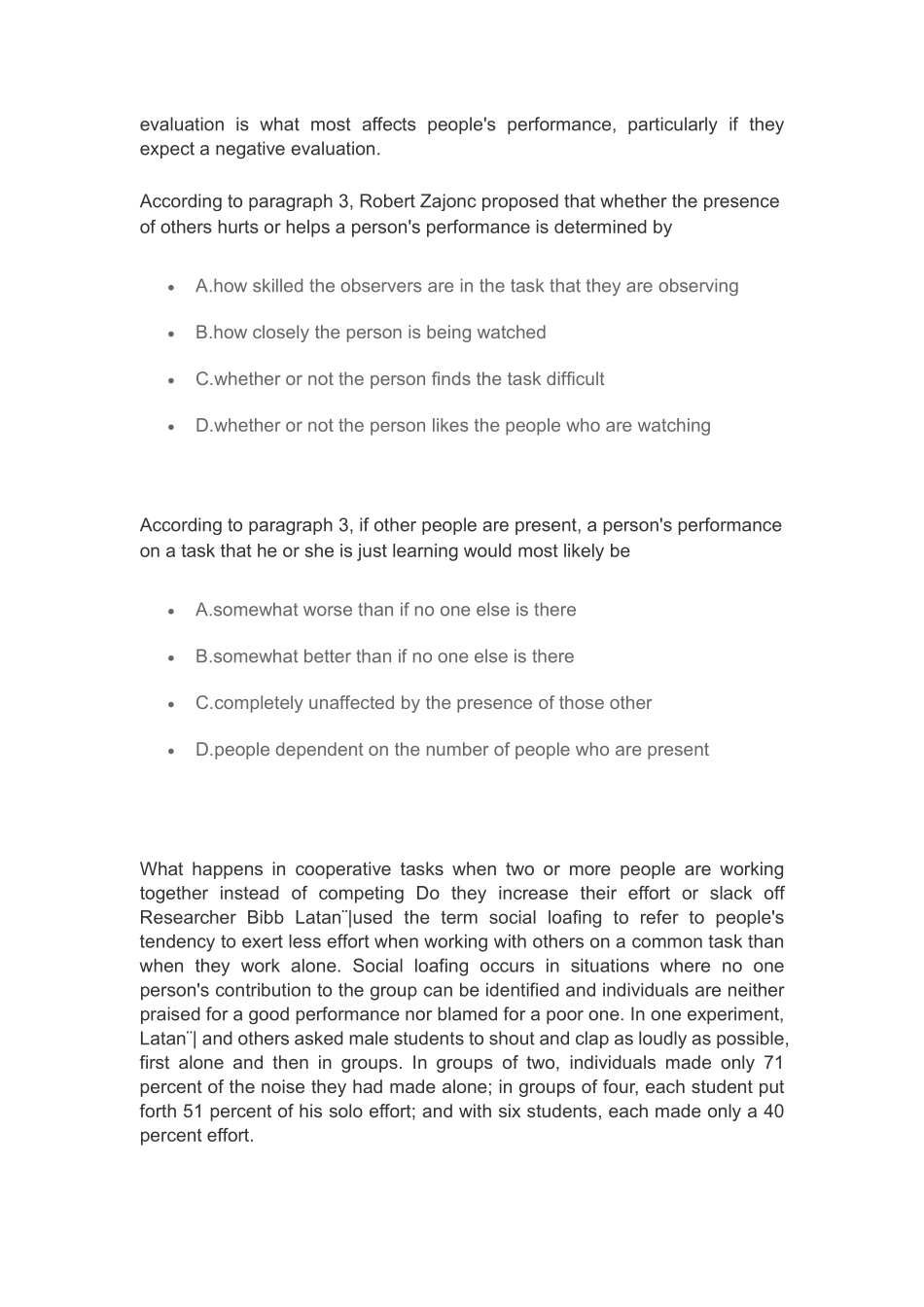Individual Performance and the Presence of OthersA person's performance on tasks can be enhanced or impaired by the merepresence of others, and a person's behavior as part of a group can be quitedifferent from the person's behavior when acting alone. In certain cases,individual performance can be either helped or hindered by the physicalpresence of others. The term social facilitation refers to any effect onperformance, whether positive or negative, that can be attributed to thepresence of others. Research on this phenomenon has focused on two typesof effects: audience effects (the impact of passive spectators on performance)and coaction effects (the effect on performance caused by the presence ofother people engaged in the same task).The word “enhanced” in the passage is closest in meaning toA.interruptedB.improvedC.influencedD.hurtWhat role does paragraph 1 play in the passageA.It introduces a common opinion that the rest of the passagechallenges on the basis of scientific evidence.B.It explains why the passage focuses on actions people takeindividually rather than on actions people take as part of a group.C.It offers a specific example of a general principle discussed in the restof the passage.D.It describes two phenomena, possible explanations of which areconsidered in the rest of the passage.In one of the first studies in social psychology, psychologist Norman Triplettlooked at coaction effects. He had observed in official bicycle records thatbicycle racers pedaled faster when they were pedaling against other racersthan when they were racing against the clock. Was this pattern of performancepeculiar to competitive bicycling Or was it part of a more general phenomenonwhereby people work faster and harder in the presence of others than whenperforming alone Triplett set up a study in which he told 40 children to windfishing reels as quickly as possible under two conditions: alone or in thepresence of other children performing the same task. He found that thechildren worked faster when other reel turners were present than when theyperformed alone.The study conducted by Norman Triplett described in paragraph 2 supportedthe hypothesis thatA.coaction effects are stronger on the performance of children than theyare on the performance of adultsB.coaction effects are limited to situations in which the time taken for atask mattersC.people perform better when they know that their performance is beingmeasured by someoneD.people perform better in the presence of others who are doing thesame thing they areLater studies on social facilitation found just the opposite effect that thepresence of others, whether co-acting or just watching, could hurt or diminishindividual performance. Social psychologist Robert Zajonc proposed anexplanation for these seemingly contradictory effects. He reasoned that webecome aroused by the presence of others and...


